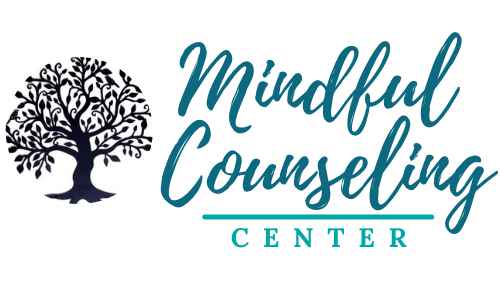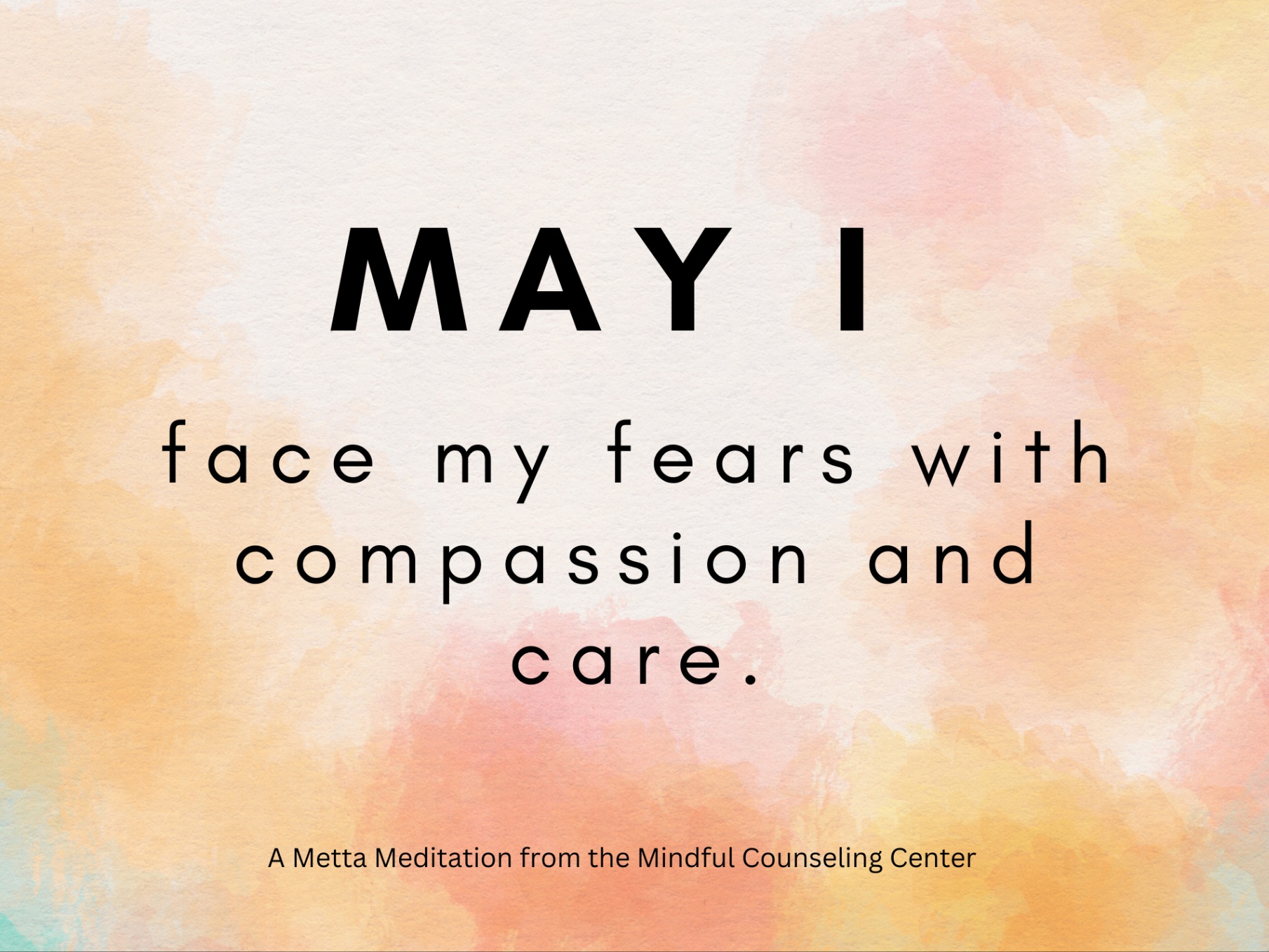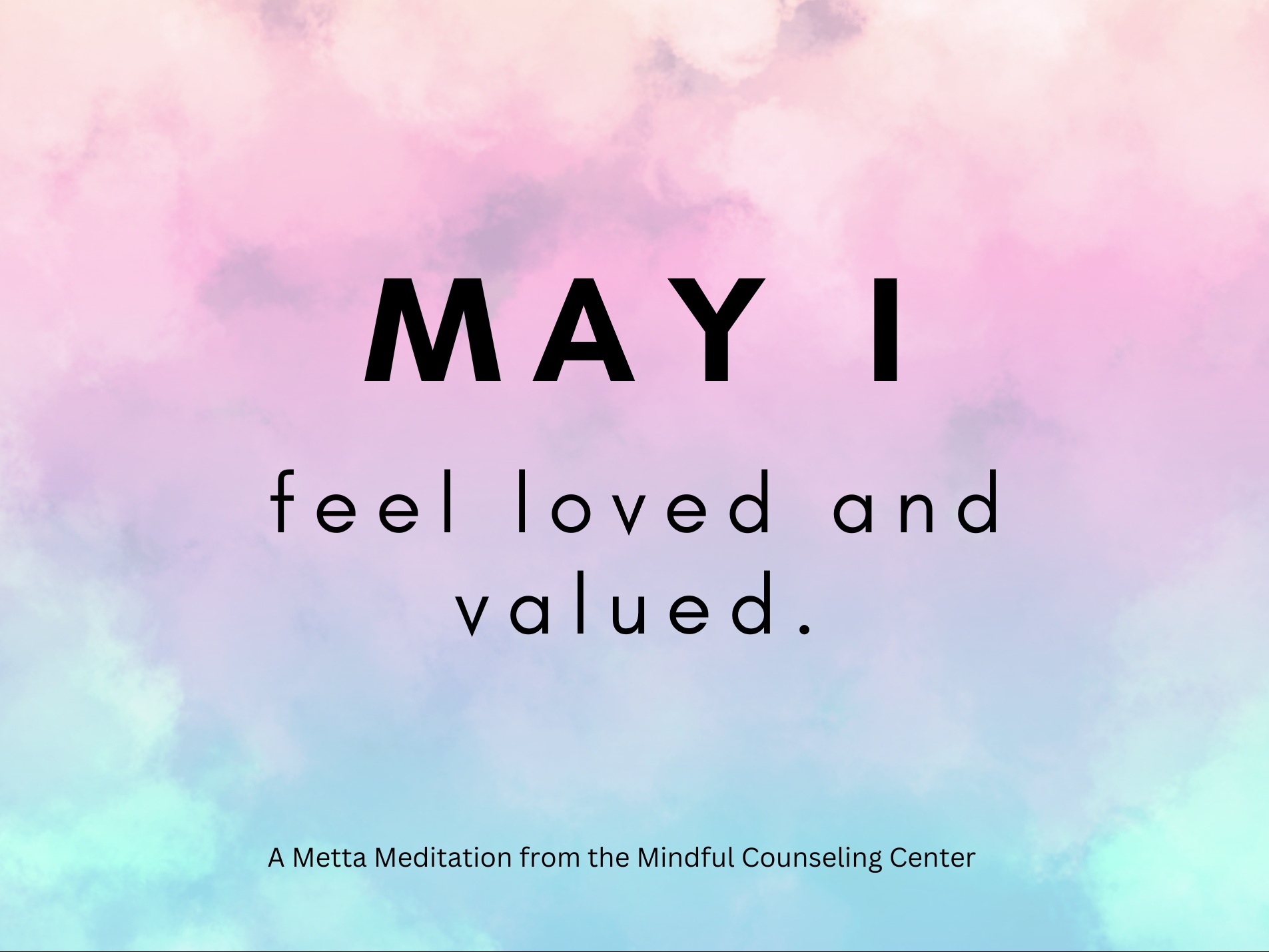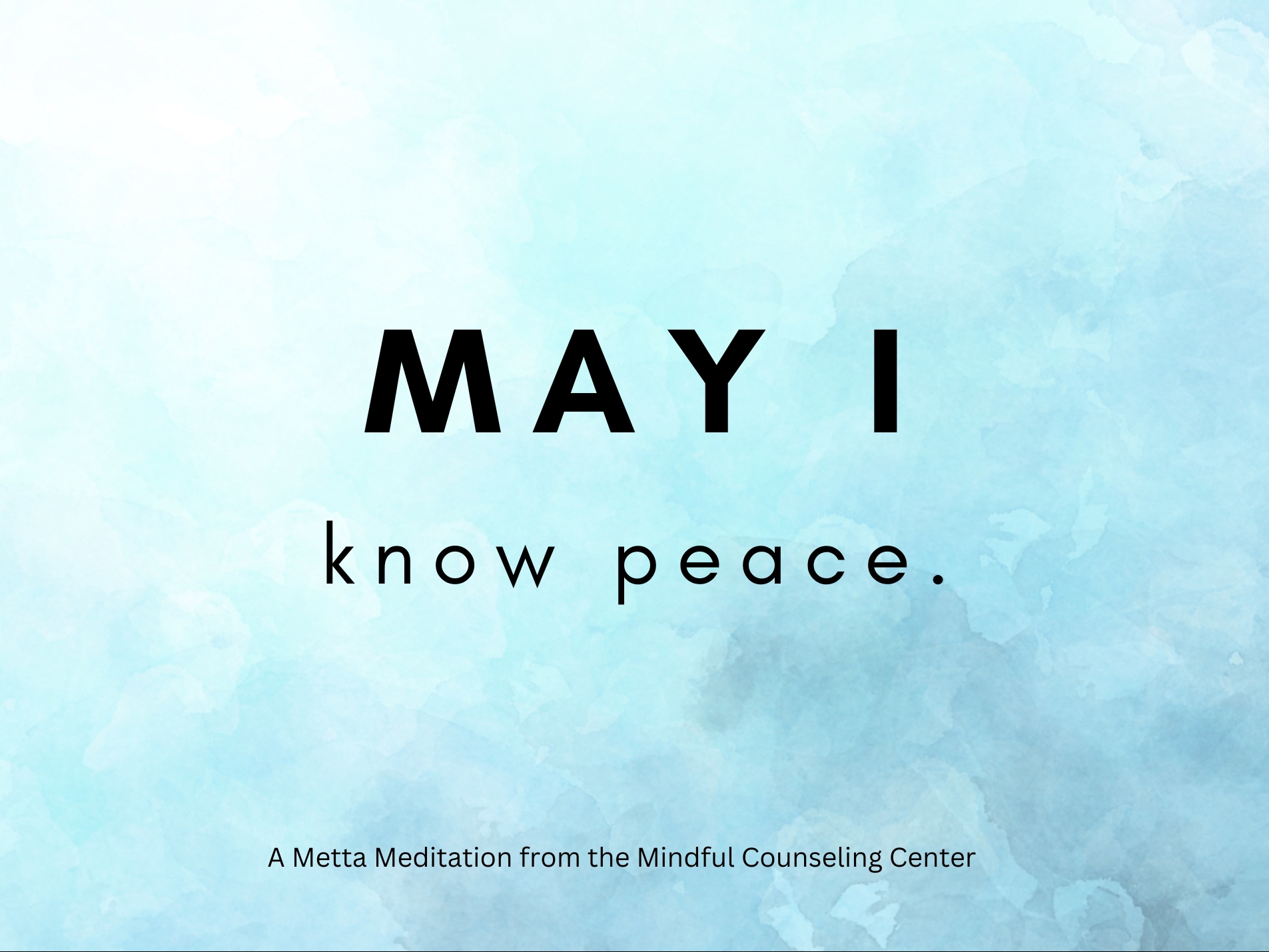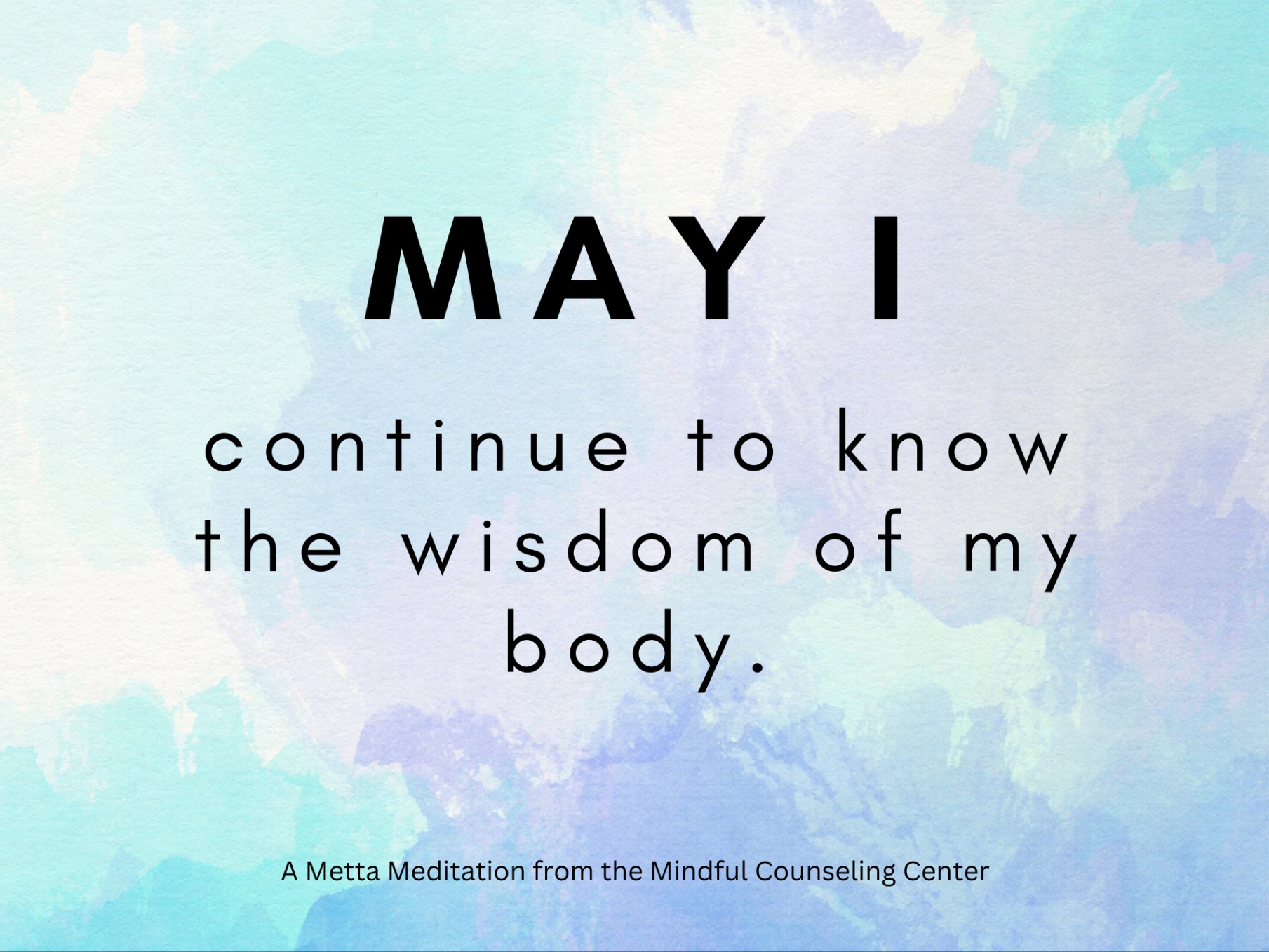Metta Meditation
 Enlarge to see the meditations in the image.(Adapted from a Mindful Counseling Center blog. Image by Kristin Littel.)
Enlarge to see the meditations in the image.(Adapted from a Mindful Counseling Center blog. Image by Kristin Littel.)
Scroll down for examples of metta phrases.
Loving-kindness meditation, also referred to as metta meditation, is a tool to cultivate goodwill towards yourself and others.
Metta meditation promotes compassion, which can aid in opening your mind and heart, repairing relationships and promoting well-being. The Mindful Counseling Center offers examples below of phrases that you might direct towards yourself and others during metta meditation activities.
(Some people feel uncomfortable with the phrase “loving-kindness.” If that is the case for you, another way to think of it is simply as promoting friendliness towards yourself and others.)
Note: If you want to see the original forest metta meditation artwork, it is in the back left counseling room in the Mindful Counseling Center office. It is also in the Self-Care Support binder on the coffee table in the waiting area.
Getting Started
(Drawn/adapted from C.Y. Hander at https://dcp.psc.gov/OSG/hso/documents/Loving-Kindness-Meditation-Handout.pdf.)
Metta meditation is typically first practiced toward oneself. Then you turn the practice towards others, usually those closest to you. If you choose, you can continue by turning towards “neutral” people in your life (co-workers, classmates, teachers, a cashier at the food store, etc.) and then people in your life whom you find challenging in some way. Lastly, you can turn to all people or beings everywhere. (Of course, you can direct your meditation towards yourself and others in any order you wish. You can choose to focus on just one “population.”)
 AN EXERCISE PAIRING METTA MEDITATION WITH VISUALIZATION
AN EXERCISE PAIRING METTA MEDITATION WITH VISUALIZATION
Start this meditation by bring up a mental picture of yourself smiling at your own reflection. Repeat your selected metta phrases, silently. For example:
- May I be happy. May I be well. May I be safe. May I be peaceful and at ease.
- May I be happy. May I be well. May I be safe. May I be peaceful and at ease.
As you say these phrases, sink into their meaning.
After a period of directing loving-kindness towards yourself, imagine a specific person close to you. Visualize yourself smiling at that person, sending the person your loving kindness.
See the person smiling back at you. Imagine that person is sending you their warmth and friendliness, wishing you happiness.
Then imagine that you are sending that same feeling of warmth, friendliness and happiness back to that person. Repeat your selected metta phrases, silently:
- May you be happy. May you be well. May you be safe. May you be peaceful and at ease.
- May you be happy. May you be well. May you be safe. May you be peaceful and at ease.
As you say these phrases, sink into their meaning.
If you wish, repeat the loving-kindness exercise towards others: first with a neutral person, then with a person whom you find challenging, and then with all people or beings.
When you are finished, notice your state of mind and how you feel after this meditation.
A Few Other Ideas for Using Metta Phrases
Another way you can use metta phrases is by “sending hope” (some might think of this practice as a form of prayer) to yourself and others before, during and after momentous events of life. For example, in the below meditation for those returning to school, there are several heartfelt metta phrases to support and encourage students returning to school after a break. You can customize the words and phrases in this meditation to fit the particular situations of the students to whom you are sending your hopeful wishes.
There may be quotes from a favorite author or poet that embody the hopeful wishes you want to send yourself or others. Your metta meditations can incorporate such quotes. For example, the “before bedtime” metta meditation below is based a quote from an anonymous source. You could send it out, either silently in your head or aloud, to yourself as you lay down for the night (replacing the “you” in the quote with “me” or “I” as appropriate) or to your children or other loved ones you care for as you help them to get ready for bed. Notice that “let” is used in this mediation instead of “may.” You can adjust the wording in a metta meditation so that it speaks to you and others the way you want.
You may use metta meditation to prompt yourself to consider ways to bring more joy, goodness, appreciation of self and others, and/or positive moments into your life. For example, in the below meditation, “May I do more of what I love,” after saying the phrase to yourself several times at the beginning or end of the day, you could envision what you would like to do that day or the next day that you love (e.g., like a walk on the beach or spend time with a friend). You might also reflect upon what you already are doing that you love (which might evoke feelings of gratitude) and what you might like to change. You could engage in similar meditative activities using the next three example meditations.





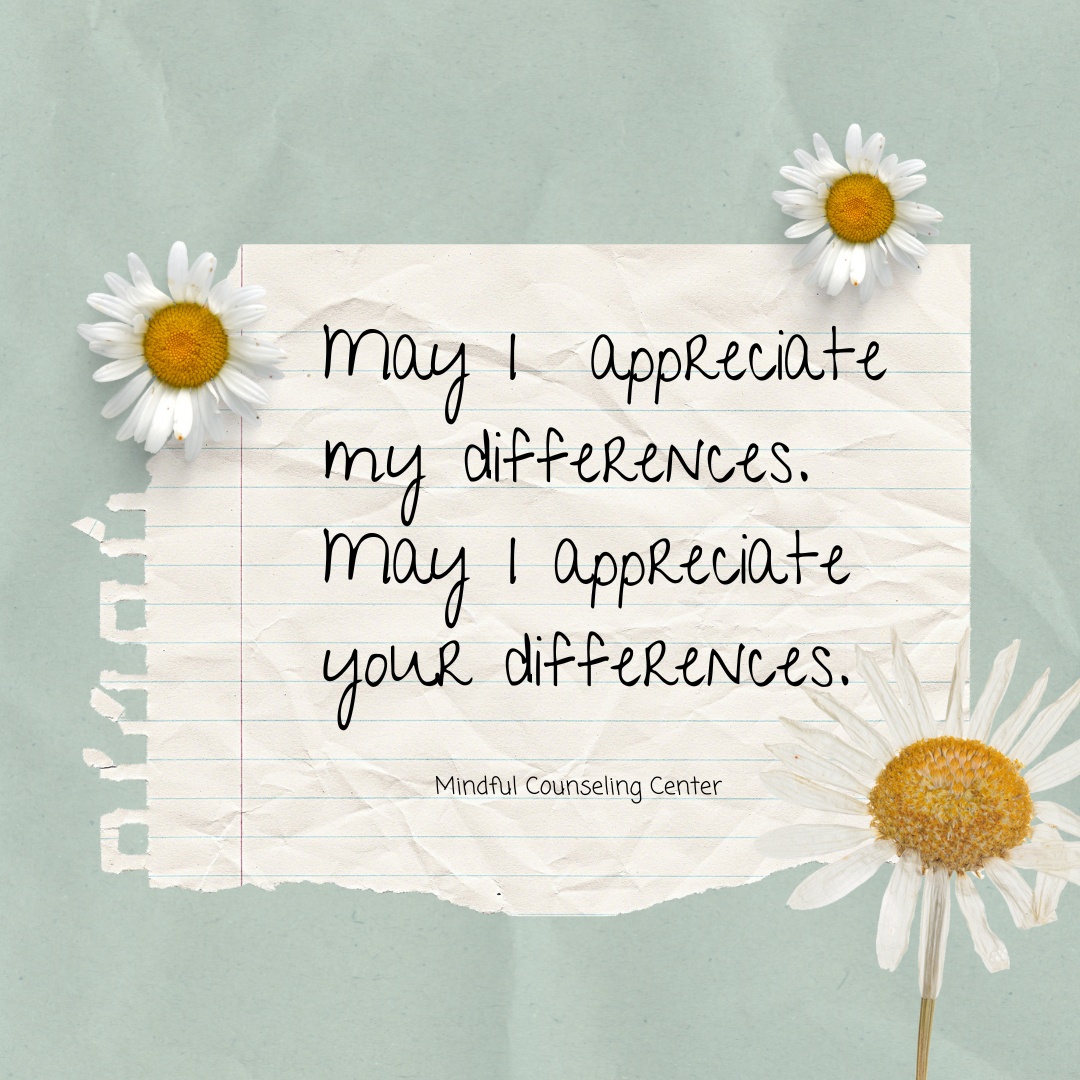
If you are working with a counselor or anticipate you will be doing so, your counselor may be able to assist you in considering if and how metta meditation might be useful to your self-care.
Reach out to us if you are interested in making a counseling appointment.
